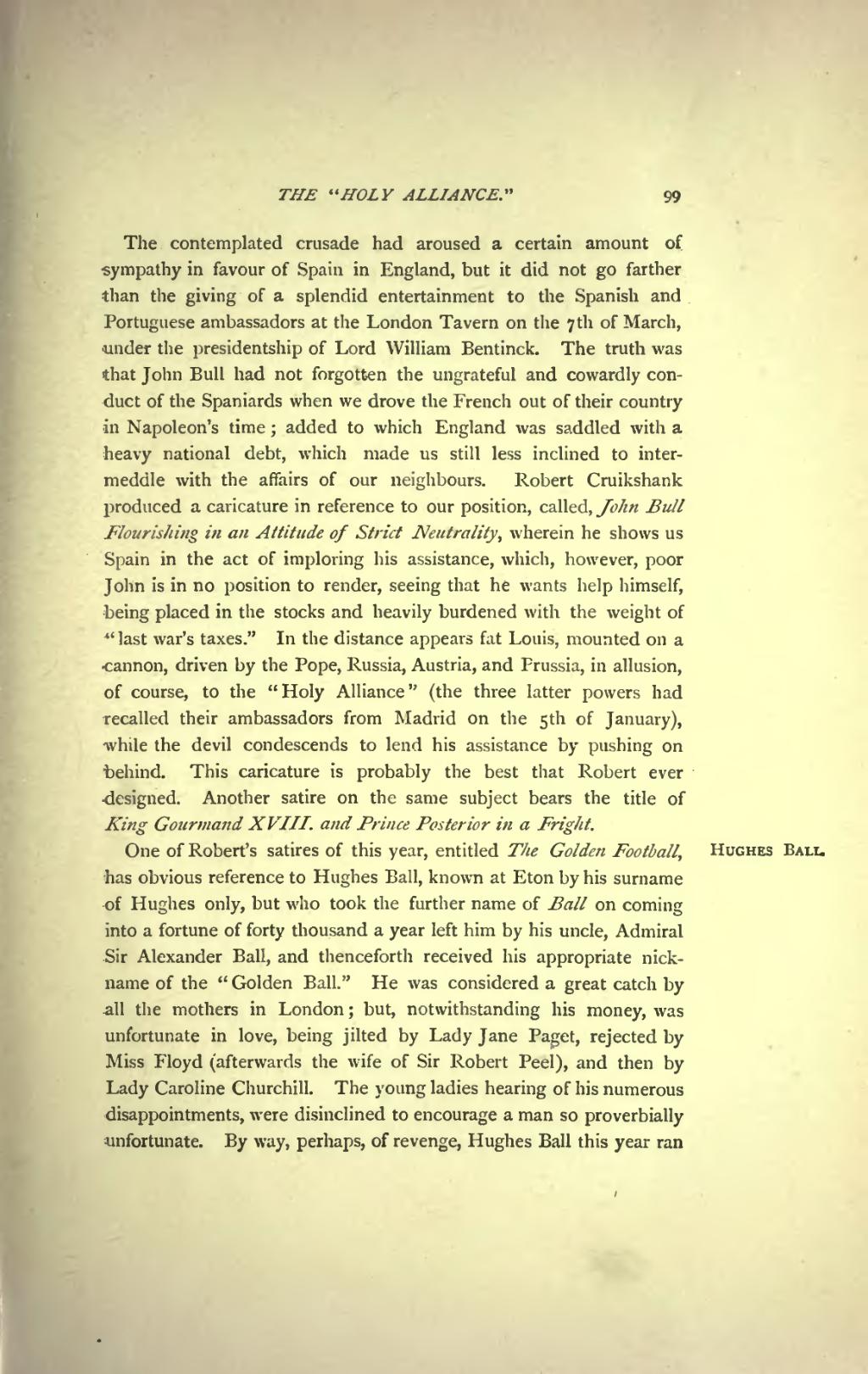The contemplated crusade had aroused a certain amount of sympathy in favour of Spain in England, but it did not go farther than the giving of a splendid entertainment to the Spanish and Portuguese ambassadors at the London Tavern on the 7th of March, under the presidentship of Lord William Bentinck. The truth was that John Bull had not forgotten the ungrateful and cowardly conduct of the Spaniards when we drove the French out of their country in Napoleon's time; added to which England was saddled with a heavy national debt, which made us still less inclined to intermeddle with the affairs of our neighbours. Robert Cruikshank produced a caricature in reference to our position, called, John Bull flourishing in an Altitude of Strict Neutrality, wherein he shows us Spain in the act of imploring his assistance, which, however, poor John is in no position to render, seeing that he wants help himself, being placed in the stocks and heavily burdened with the weight of "last war's taxes." In the distance appears fat Louis, mounted on a cannon, driven by the Pope, Russia, Austria, and Prussia, in allusion, of course, to the "Holy Alliance" (the three latter powers had recalled their ambassadors from Madrid on the 5th of January), while the devil condescends to lend his assistance by pushing on behind. This caricature is probably the best that Robert ever designed. Another satire on the same subject bears the title of King Gourmand XVIII. and Prince Posterior in a Fright.
Hughes Ball.One of Robert's satires of this year, entitled The Golden Football, has obvious reference to Hughes Ball, known at Eton by his surname of Hughes only, but who took the further name of Ball on coming into a fortune of forty thousand a year left him by his uncle, Admiral Sir Alexander Ball, and thenceforth received his appropriate nickname of the "Golden Ball." He was considered a great catch by all the mothers in London; but, notwithstanding his money, was unfortunate in love, being jilted by Lady Jane Pager, rejected by Miss Floyd (afterwards the wife of Sir Robert Peel), and then by Lady Caroline Churchill. The young ladies hearing of his numerous disappointments, were disinclined to encourage a man so proverbially unfortunate. By way, perhaps, of revenge, Hughes Ball this year ran
